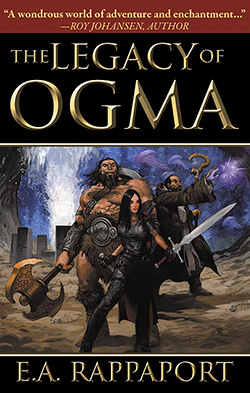New England Book Festival

Book shows good writing, dialog and characterization. The storyline is reminiscent of a Joseph Campbell outline, "Hero with a Thousand Faces," which, having been the basis of "Star Wars," is a good thing.
We're introduced to Halia, who is an orphan turned thief, somewhat like the Artful Dodger. She uses her skills to fight off fantastic creatures and various bad guys as she makes her way through life. Like Odysseus, she eventually has to cross the bridge into another realm, when she runs into an ancient castle. Inside the castle walls, she retrieves not the Ring of Lord of the Rings, but a mysterious crystal sphere that will change her future. Back in her world, she looks up with Minaras, the wizard, and elicits his help in uncovering the secrets of the crystal ball.
To her dismay, she discovers that the key to puzzle, a page from a book in the Wizard's library, has gone missing. And it's not until she runs into two others with the same kind of spheres that she can find help to discover the answers, introducing the characters of Ahriman, the magician, and Xarun, a warrior. However, unbeknownst to Halia, one of her traveling companions is not truly who he says he is, and is a threat to her very existence.
THE WRITING:
The author, E. A. Rappaport, is a graduate of MIT and an engineer. He obviously has a penchant for puzzles and interlocking story lines. Ultimately, there are five spheres, and the book is said to be one of a series of books, that, along with other series in the storyline, will be also interlocked. As they search for the spheres, we run into other charactersP Arwold, a Krof warrior of Krof, and Kuril, a Guardian from Arboreal along with the previously-mentioned characters. Each of the spheres seems to represent failings of the human condition, and perhaps the joining of them all will make Halia whole. One can only imagine. Perhaps because there are so many names and characters to keep track of, at times the story telling seemed pedantic, and the dialog stiff. Characters that speak in exclamations (!) always seem to make up for lack of detail, and I was hard- pressed to find the voice of the author leading down these paths with a surety of purpose and intent. What sets books of this genre apart is not their swash or their buckle, but the ability to get an audience to identify and care about the characters. Hence why the Campbellian paradigm usually begins with the death of the hero's family or parents, so that we're rooting for them throughout. But I would also caution about the selling of the series before the selling of the first book, i.e., "Book One in Legends of Four Races." The first book has to be so successful that the second and third are inevitable, or that the story is so broad that a series might come from the rest. Even though George Lucas wrote a trilogy of an idea for Star Wars, there was no guarantee he'd get past the first story, so he told a complete tale in the first episode of his sage. The first book has to jump off the page, and the characters have to be easy to identify and marketable and not reminiscent of other famous characters in novels, unless it's from another genre. It's okay to be the Sherlock Holmes of Sword and Sorcery, but you don't want the audience to get ahead of you when it comes to looking for the macguffin, in this case the sphere. Something about the sphere should be beyond what we might be able to imagine it to be. Still, overall, it's an entertaining read.
MARKETING:
This is perfect for the fantasy and science fiction crowd. Whether its conventions or groups that play online games about swords and sorcery, there are many places where a well-placed ad would garner interest and a higher profile. Currently there are over 600,000 hits with regard to sword and sorcery tales, so there's certainly a market for it. The answer is to find out all the most respected festivals, conventions and groups that traffic in the genre, and then find a home for Halia and her tale. Hollywood has embraced the genre with a spate of films including "Eragon," and the video game industry is ever greater with its ubiquitous "WarCraft" and other sagas. Part of the great marketability of the genre is to focus the characters in such as way so that a story can be platformed out of it; whether feature films, video games and the like. And "Legacy" has a shot at a piece of that market if the marketing focuses on getting in front of the eyes of those who are reading other books. Some innovative marketing techniques include getting an ad embedded into another's video game, or to find a way to purchase an ad in a comic book of the same ilk. Perhaps hire a gamer to create something in "Second Life" or other virtual worlds. Also, buying an online ad, with a link through to the author's website, is another way to put the product in front of the greater audience.
Bruce Haring - New England Book Festival

